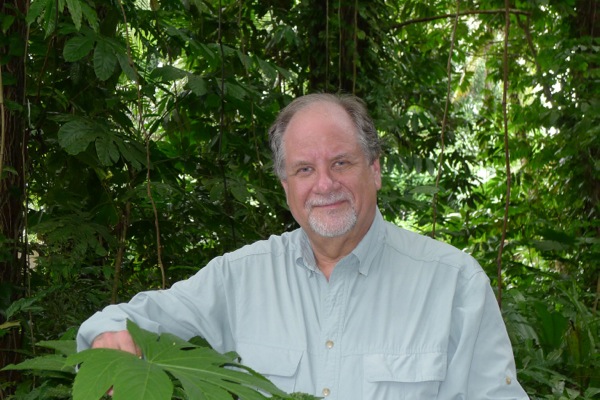Ethnobotany
UD alumnus Michael Balick returns to give talk on ethnobotany
9:28 a.m., April 23, 2014--In 1970, Michael Balick gave his first public lecture in the Townsend Hall Commons at the University of Delaware’s College of Agriculture and Natural Resources. As a freshman studying ornamental horticulture and plant agriculture, that lecture focused on the harvest, processing and utilization of garden herbs.
Now, after 37 years traversing the globe and studying herbs with medicinal properties within indigenous cultures, co-founding the New York Botanical Garden’s Institute of Economic Botany with Sir Ghillean Prance, and receiving his doctorate in biology from Harvard University, Balick will return to the spot where he gave his first talk. And, again, he will be presenting a lecture.
People Stories
'Resilience Engineering'
Reviresco June run
Balick will discuss “Ancient Wisdom and Modern Medicine: Plants, People and Cultures in the Tropical Rainforest” in a presentation at 7 p.m., Monday, May 5.
It will focus on Balick’s work as an ethnobotanist at the New York Botanical Garden, highlight some of the places that he has worked over the past several decades, and focus on what herbals are and why they are important for contemporary times when people are searching for healthier, more natural lifestyles and more time spent outdoors in the gardens and fields.
Following the lecture, there will be a launch event for Balick’s new book 21st Century Herbal: a Practical Guide for Healthy Living Using Nature’s Most Powerful Plants.
Balick said it meant a lot to have the “launch of the book in the same place that was so important to the earliest parts of my career.”
Ethnobotany
Balick described ethnobotany as the study of the relationship between plants, people and culture and said that he got involved with ethnobotany from the beginning of his time at UD.
Ethnobotany has always fascinated him and it has allowed him to travel to many parts of the globe.
“During part of my career, I worked with indigenous people in the Amazon, I’ve worked with indigenous cultures in Belize, Central America, and I currently work with indigenous cultures in tropical Pacific islands,” said Balick.
Explaining that he has been able to learn from traditional healers about all sorts of herbs, Balick stressed that there are many herbs of which people in the United States are not aware. “There are around four billion people who use plant medicines for some part of their primary health care around the world and they use many tens of thousands of the 420,000 species of flowering plants that are known to exists on earth,” said Balick. “Scientists have identified at least 30,000 species of plants used by traditional cultures for some part of primary health care. So there are a lot we don’t know about in the United States; they don’t appear in our markets or in our books.”
Balick’s book draws upon the work he has been doing since the 1970s and he said that through his work with integrative medicine — combining state of the art Western medical practices with evidence-based, traditional herbal medicines — he discovered there was a need for a book that could articulate some of the wonders of herbs to the general public.
“At the same time, the book allows me to tell stories about some of the things that have happened in my travels and studies,” said Balick. “And I can try to explain to the broader public the importance of botany in their lives, how herbs work, the mechanisms of plant chemistry and how to make all sorts of different formulas.”
As for his time at UD, Balick said he enjoyed spending time at Longwood Gardens with the Longwood Graduate Program and that he was given the freedom to explore the things in which he was interested, satisfying his curiosity about the different aspects of the plant world.
“Education for me at the University of Delaware was about identifying my passion and sailing in that direction with the encouragement of so many fine professors and a wonderful student body, to whom I am really grateful,” said Balick. “I’d encourage everyone to find something in life that they’re fascinated with and go full speed ahead in that direction because in the end it’s not a job you’re searching for, it’s a career and it’s just so satisfying to work on something that brings excitement to you on a daily basis. I would say horticulture and agriculture and plant science allow you the freedom to do just that.”
Article by Adam Thomas












